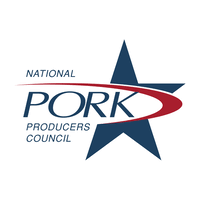
National Pork Producers Council
The promise of gene-edited livestock—used to make specific changes within an animal’s own genome— is significant, allowing us to produce animals that are more disease-resistant, require fewer antibiotics and have a better environmental footprint. However, a regulatory tug of war remains between the U.S. Department of Agriculture (USDA) and the U.S. Food and Drug Administration (FDA) over authority on genetic editing in livestock. Unfortunately, U.S. livestock farmers are caught in the middle, allowing China, Brazil, Canada and other global competitors to move ahead in the race to utilize this new technology, NPPC President Howard “AV” Roth, a hog farmer from Wauzeka, Wis., wrote this week in an op ed published in Agri Pulse. Regulatory overreach by the FDA is preventing the United States from realizing the benefit of this promising technology. Under FDA regulation, gene editing faces an impractical, lengthy and expensive approval process, inhibiting the necessary investment to develop this technology, Roth wrote. USDA should have primary authority for new genetic technologies used in livestock. The agency already has a review process in place for genetic editing in plants under its Animal and Plant Health Inspection Service, which can be adapted for livestock. “We want to make sure it’s regulated in the right way, so farmers and ranchers have access to it,” NPPC Director of Science and Technology Dr. Dan Kovich explained on “Adams on Agriculture” on Wednesday. “We’re hoping a decision [on regulatory oversight] is going to made soon,” he added.
